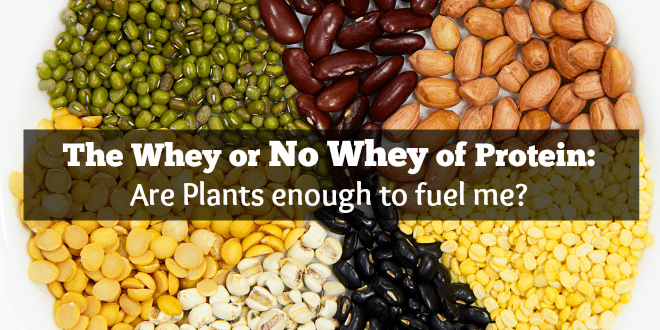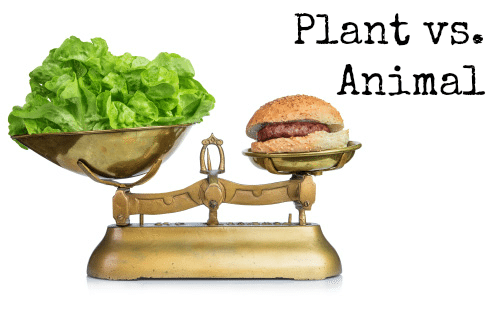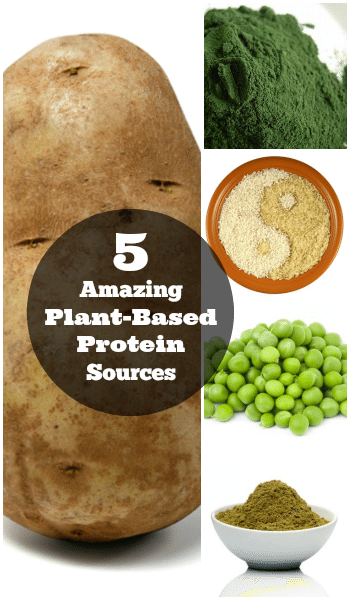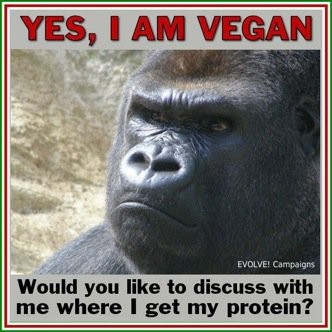The Whey or No Whey of Protein: Are Plants enough to fuel me? #ItMatters

 Carrot sticks, celery sticks, almond butter, raisins… all great to eat, but is it enough to fuel athletes through the toughest of workouts?
Carrot sticks, celery sticks, almond butter, raisins… all great to eat, but is it enough to fuel athletes through the toughest of workouts?
Being competitive as an athlete is hard enough but trying to be a competitive athlete who eats no meats, fish, dairy or animal products period? Darn near impossible if you don’t know what you’re doing. This post explores the pro’s and con’s of whey vs plant-based proteins.
Most protein supplements have additives, no matter what they say on the label! Animals which these products are derived from ( dairy cows predominantly ) are typically not of an organic source (i.e. grass fed**), making them poorer options to supplement with.
NB: ** grass-fed does not equal organic and vice versa , neither means healthier or safer than conventional animal products.
NOTE: Not all proteins are equal!
[box type="info" align="aligncenter" ]
4 Important Health Benefits of Protein as an essential food source:
- Promotes a leaner, healthier body: Studies suggest protein can improve lean body mass, enhance satiety and increase thermogenesis. It’s also shown to boost immunity and can help prevent natural muscle loss due to aging.
- Provides easier weight loss and maintenance: Higher protein diets are associated with increased total weight loss and more specifically increased % fat loss.
- A little goes a long way: Even a 3% increase in protein consumption (18% of calories vs 15%) can make a significant difference in weight loss and the prevention of weight-regain after dieting.
- The American College of Sports Medicine and American Dietetic Association and Dieticians of Canada joint position statement contends that physically active adults need 50-100% more protein.
Paddon-Jones, et al. Protein, weight management and satiety. Am J Clin Nutr 2008. Fulgoni V. Am J Clin Nutr 2008.[/box]
Plant-based protein is healthy, though a variety of foods would be necessary to get the full spectrum of essential amino acids to adequately feed muscles. Consuming a large amount of meat has never been necessary for humans to maintain good physical form. In addition, some plant-based protein supplements are highly usable, such as hemp, brown rice, and pea protein.
These are great sources of protein for the body with high biological value. This means that a large percentage of the protein is digested and absorbed to help with joint and tissue repair. Since not all proteins are equal, this is something to be aware of! For example, some sources of soy is not a high quality or biologically valuable source for protein. However, in Genuine Health's transform+ product, which uses a soy isolate that is both water extracted and non-GMO is 90% protein, which by soy standards is extremely high.
So what am I trying to say? Do your research!
 5 Amazing Plant-Based Protein Sources
5 Amazing Plant-Based Protein Sources
Here are the top rated plant-based proteins…
1. Hemp protein
This is the greatest of plant-based proteins for the human body. Its structure closely resembles ours and it has all the essential amino acids you need to build muscle and stronger connective tissue, as well as natural enzymes. It is also a good source of omega 3 and omega 6 fatty acids, which we need but whey-based proteins do not contain.
2. Chlorella and Spirulina proteins
This is a high quality ocean-based source of vegan protein. It is used a lot by vegans and vegetarians. It is great for building dense muscle and detoxing. It is a great source of chlorophyll and many minerals. You can get this in tablet or powder form.
3. Potato Protein Isolate
This is one of the newest and most innovative vegetarian proteins on the market. It has the highest percentage of amino acids compared to any other vegetarian protein; has the highest level of Branched Chain Amino Acids (BCAAs) to support muscle synthesis and counter fatigue; digests easily and rapidly, and potatoes are non-GMO.
4. Brown rice protein
Here, we are referring to the “sprouted” brown rice protein, which is processed and extracted in a specific method which makes it the first hypoallergenic protein. A single scoop can contain even more protein than hemp protein, with a decent profile of all 9 essential amino acids and several other non-essential amino acids. Some manufacturers mix this with pea proteins to make the profile more complete.
5. Pea protein
This has a high digestibility of 90 to 95%, which is really high! As mentioned above, this is usually mixed with rice protein to give the supplement a better amino acid profile. It is highly usable and is a relatively new source of plant-based protein for supplementation.
In conclusion, when looking for a plant-based protein…
If you’re looking for a good plant-based protein, be sure to do your research and find out how the protein is manufactured and extracted. Pay attention to the method by which proteins are processed. When doing your research, look for proteins that are processed without the use of chemicals, as well, ensuring that the protein source is tested for pesticides, heavy metals and GMOs.
[toggle title="The Research" state="open" ]
 4 Reason why you should include a Vegan-based protein source:
4 Reason why you should include a Vegan-based protein source:
- Typical animal-based protein sources can be high in calories and saturated fats, additives and preservatives (ie: meat and dairy sources).
- Higher intake of plant-based proteins (ie: in Asian nations) has been linked to better health. (The China Study, Campbell, et al).
- Vegan, plant-based protein sources contain essential amino acids and can be easier to digest versus other proteins.
- The body can develop intolerances to foods eaten repeatedly – including protein. This is why ‘cycling’ protein sources (animal and vegan) is recommended by health experts such as Dr. John Berardi.
Whether you are vegetarian or not, trust Vegan proteins+ and its complete, all-natural formula to help you achieve a healthier, leaner body– naturally.
[/toggle]
This post is one of an 8 part series inspired by Genuine Health's #ItMatters campaign. Check out a few of the following posts to learn more about how to optimize your nutrition for performance and recovery:
- Optimum Nutrition for Peak Performance and WHY it matters
- Sports Nutrition Vs Everyday Nutrition – There IS a Difference
- The Way of the Weekend Warrior: Recovery, it matters
- The Athlete’s Way: Prepare, Perform, Rebuild – then Repeat (Often!)
- Lactic Acid Sucks (but it doesn’t have to): Why BCAA’s and Creatine Work
- The Pre-pre-race preparation: 6 & 1/2 Sports Nutrition Tips
- Getting the most from my WOD: Sports Nutrition Must Do’s
[divider]
 This is my disclaimer, “Just so you know, I have been compensated to share my ideas on this topic. Sometimes it is in the form of products, or services or even money… But here’s the thing; I won’t share anything with you that I don’t fully support. It doesn't matter what it is, or how much they are willing to give me, if I don’t believe in it, It won’t be on my site. Seriously. You’ll just have to trust me on this.”
~ Moose
This is my disclaimer, “Just so you know, I have been compensated to share my ideas on this topic. Sometimes it is in the form of products, or services or even money… But here’s the thing; I won’t share anything with you that I don’t fully support. It doesn't matter what it is, or how much they are willing to give me, if I don’t believe in it, It won’t be on my site. Seriously. You’ll just have to trust me on this.”
~ Moose
[divider]




































































































